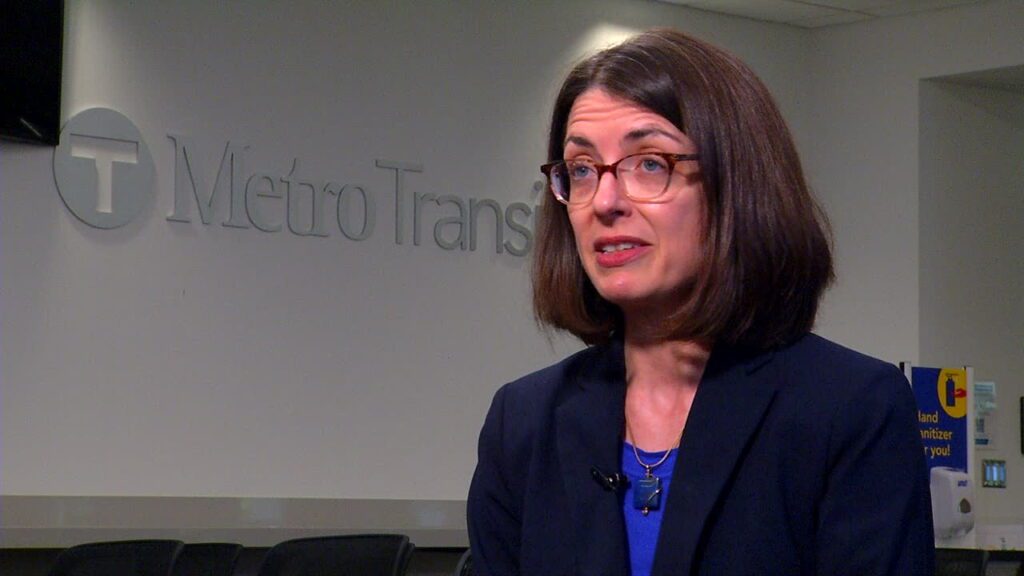‘An opportunity to think boldly’ — New Metro Transit GM looks to build on safety improvements
The new head of Metro Transit describes improving the “customer experience” as one of her top priorities as she takes over an agency plagued in recent years by rising drug use and crime on trains and buses.
Lesley Kandaras, 43, spent the last 11 years as an employee of the Metropolitan Council, which oversees Metro Transit, before being named general manager last week.
“I certainly feel a lot of responsibility,” Kandaras said in her first on-camera interview with 5 INVESTIGATES.
Kandaras is the first woman to lead the agency in its history.
One of her first tasks as general manager was to update Met Council members Wednesday on a 40-point Safety and Security Action Plan that Kandaras helped create.
Increased fare enforcement and the use of private security at stations such as Lake Street-Midtown have recently provided reasons for optimism.
Metro Transit also touted its ability to accommodate large crowds leaving the Taylor Swift concert in June. Kandaras says she went in person to see how trains handled the demand after that event.
“People were really thankful that we had this form of transportation here in the Twin Cities,” Kandaras said. “So, I think those big events just help spotlight what transit riders experience every day – that we’re an efficient way to get around the metro.”
However, Kandaras acknowledges that the perception of safety on Metro Transit is still a problem.
Recent surveys of riders indicated that 50% to 60% of people were “neutral” or “disagreed” with the statement that they felt safe waiting or on board transit.
“We hear from riders and our own employees that they don’t always feel safe on our system,” Kandaras said. “When people are saying to us they feel unsafe, they feel uncomfortable, we must acknowledge that.”
In addition to trying to hire more police officers, Kandaras points to initiatives included in the latest transportation bill signed by Governor Tim Walz this year.
RELATED: Metro Transit vows to improve safety with state funded ‘intervention’
Part of the Transit Safety Intervention Project includes hiring unarmed transit agents to handle fare inspection and issue administrative citations that are similar to parking tickets.
“They’re going to be conducting fare checks, but they’re also there to help assist customers,” Kandaras said. “Certainly, we’re going to make sure these employees are well trained and know how to navigate our system and know how to de-escalate conflict. And they’re not going to be out there alone.”
Kandaras said no single approach will solve all of Metro Transit’s problems.
In May, 5 INVESTIGATES traveled to St. Louis where transit leaders are addressing similar safety issues by investing $52 million to install gates and turnstiles at every light rail station.
Kandaras did not rule out making some additional physical changes to stations that she described as “environmental design.”
She says a 0.75% metro-area sales tax for transportation that takes effect in October will be a critical revenue source for ongoing operations, maintenance and investments in public safety.
“Transit benefits communities, even people who don’t necessarily ride transit. It does that by connecting people to opportunity,” Kandaras said. “Part of our task is really to show that benefit to people about what they’re getting for that public investment.”
